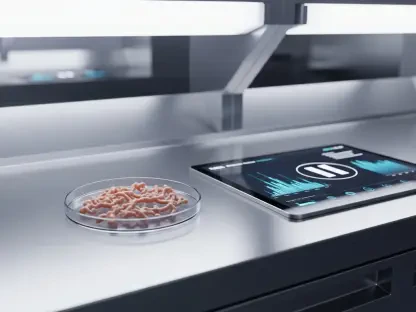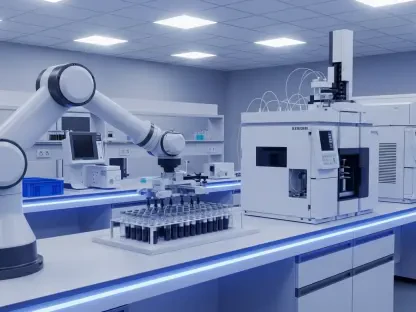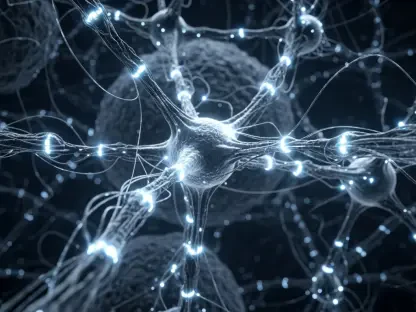What happens when the joy of motherhood is eclipsed by an unyielding fog of despair for nearly half a million women in the U.S. each year? Postpartum depression (PPD), a debilitating condition affecting about 15% of new mothers, often turns a time of bonding into a battle for mental survival. Amid slow-acting treatments and inaccessible care, a radical possibility emerges from an unlikely source—psychedelics. A compound inspired by magic mushrooms, known as RE104, is showing astonishing potential to lift this burden in mere days. This exploration delves into whether such unconventional therapies could rewrite the narrative of maternal mental health.
A New Frontier for New Mothers: Could Psychedelics Offer Hope?
For countless women grappling with PPD, the daily struggle of overwhelming sadness and exhaustion can feel insurmountable. Traditional treatments, often taking weeks to show effects, leave many stranded in their suffering. Now, an experimental drug called RE104, developed by Reunion Neuroscience, a New Jersey-based company, is challenging the status quo with its psychedelic roots. Mimicking the effects of psilocybin, this compound promises rapid relief, igniting both curiosity and cautious optimism in the medical community.
The significance of this development cannot be overstated. With maternal mental health recognized as a pressing public health issue, the potential for a treatment that works swiftly and effectively could be life-changing. RE104’s early results suggest a shift in how PPD might be approached, moving beyond the limitations of current therapies. This story is not just about a drug; it’s about redefining hope for mothers who feel lost in the shadows of their new reality.
The Crisis of Postpartum Depression: A Call for Urgent Solutions
The scale of PPD’s impact is staggering, affecting roughly one in seven new mothers across the nation. As the most common complication tied to childbirth, it disrupts lives with symptoms ranging from deep anxiety to profound fatigue, often at a time when support is most needed. Yet, the existing landscape of care reveals glaring gaps—many treatments are slow to act, require extended hospital stays, or pose challenges for breastfeeding mothers, creating barriers that exacerbate the crisis.
Compounding the issue, drugs like Zulresso and Zurzuvae from Sage Therapeutics, though innovative, have struggled with market adoption due to practical constraints. Access to therapy remains limited for many, particularly in underserved communities where resources are scarce. This persistent shortfall underscores an urgent demand for alternatives that are not only effective but also adaptable to the unique demands of motherhood, paving the way for unconventional approaches to gain traction.
Unpacking RE104: A Potential Game-Changer in PPD Care
At the heart of this emerging solution is RE104, a psychedelic compound under investigation by Reunion Neuroscience. In a recent mid-stage trial involving 84 women with moderate to severe PPD, the results were striking. Participants who received a 30 mg dose experienced a 23-point drop in depression scores within seven days, far outpacing the control group’s 17.2-point reduction, with over 77% showing at least a 50% improvement in symptoms.
Even more compelling, 71% of those in the higher-dose group reached remission, with effects noticeable from the day of injection and lasting through a 28-day follow-up. Safety data bolstered these findings, revealing no serious adverse events, a critical factor for a demographic as vulnerable as new mothers. Additionally, a lactation study found negligible drug metabolites in breast milk—less than 0.1% of the dose—suggesting minimal risk to infants and offering a practical edge over other treatments.
With plans to advance to larger trials between 2025 and 2027, Reunion aims to solidify these early successes. If validated, RE104 could address not just the speed of relief but also the logistical hurdles that often deter mothers from seeking help. This compound stands as a beacon of possibility, hinting at a future where PPD treatment aligns more closely with patients’ lived realities.
Voices from the Field: Experts Weigh In on Psychedelic Potential
Insights from leading researchers add depth to the conversation surrounding RE104. Anita Clayton, lead investigator from the University of Virginia School of Medicine, described the trial outcomes as “promising,” emphasizing the dire need for fresh approaches in PPD management. Her observations reflect a broader sentiment among clinicians that current options often fail to meet the immediate needs of struggling mothers.
Industry support further fuels this momentum, evidenced by Reunion’s securing of a $103 million financing round in recent years from investors like MPM Capital and Novo Holdings. This backing signals confidence in psychedelic therapies as viable solutions for mental health challenges. While direct accounts from trial participants remain undisclosed, the data alone paints a vivid picture of potential transformation, though experts stress the importance of larger studies to confirm these initial triumphs.
The balance of enthusiasm and caution is palpable in academic circles. Researchers advocate for rigorous testing to ensure safety and efficacy on a wider scale, recognizing that early promise must be matched by sustained evidence. This measured perspective highlights the stakes involved—offering a lifeline to mothers while navigating the complexities of introducing a novel treatment paradigm.
Moving Forward: Reshaping Maternal Mental Health with Psychedelics
As RE104 progresses through clinical stages, its integration into PPD care warrants close attention from healthcare providers and advocates. Staying updated on trial results over the coming years will be crucial, as these outcomes will shape regulatory decisions and practical implementation. A single-dose, fast-acting treatment could minimize disruptions for new mothers, particularly those balancing breastfeeding and recovery.
Beyond individual impact, broader systemic changes are needed to normalize psychedelic therapies in clinical settings. Addressing stigma through education and advocacy will be essential to ensure access for those who stand to benefit most. Reunion’s exploration of RE104 for other conditions, such as adjustment disorder in serious illnesses, also suggests a wider horizon for its application, potentially influencing mental health care at large.
Reflecting on this journey, the strides made with RE104 mark a pivotal moment in confronting postpartum depression. The rapid relief and compatibility with motherhood’s demands offer a glimpse of what could be a new standard of care. Looking ahead, the hope is that continued research and collaboration will validate these early wins, ensuring that no mother faces the darkness of PPD alone. The path forward demands sustained effort—pushing for accessible, innovative solutions that truly meet the needs of those in crisis.









